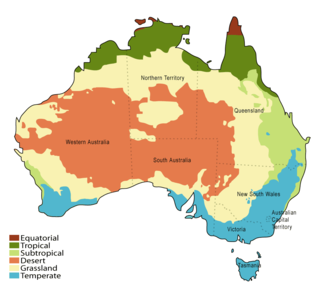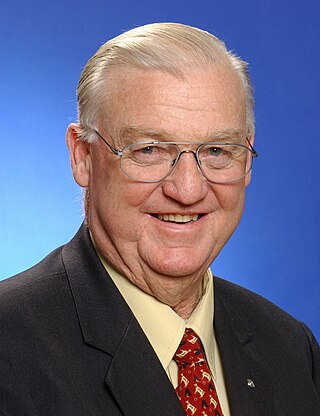
The Commonwealth Scientific and Industrial Research Organisation (CSIRO) is an Australian Government agency that is responsible for scientific research and its commercial and industrial applications.

Danone S.A. is a French multinational food-products corporation based in Paris. It was founded in 1919 in Barcelona, Spain. It is listed on Euronext Paris, where it is a component of the CAC 40 stock market index. Some of the company's products are branded Dannon in the United States.

Almond milk is a plant-based milk substitute with a watery texture and nutty flavor manufactured from almonds, although some types or brands are flavored in imitation of cow's milk. It does not contain cholesterol or lactose and is low in saturated fat. Almond milk is often consumed by those who are lactose-intolerant and others, such as vegans, who do not consume dairy products. Commercial almond milk comes in sweetened, unsweetened, vanilla and chocolate flavors, and is usually fortified with micronutrients. It can also be made at home using a blender, almonds and water.

A plant-based diet is a diet consisting mostly or entirely of plant-based foods. Plant-based diets encompass a wide range of dietary patterns that contain low amounts of animal products and high amounts of fiber-rich plant products such as vegetables, fruits, whole grains, legumes, nuts and seeds. They do not need to be vegan or vegetarian, but are defined in terms of low frequency of animal food consumption.

Although Australia is mostly arid, the nation is a major agricultural producer and exporter, with over 325,300 people employed in agriculture, forestry and fishing as of February 2015. Agriculture and its closely related sectors earn $155 billion a year for a 12% share of GDP. Farmers and grazers own 135,997 farms, covering 61% of Australia's landmass. Across the country, there is a mix of irrigation and dry-land farming. The success of Australia in becoming a major agricultural power despite the odds is facilitated by its policies of long-term visions and promotion of agricultural reforms that greatly increased the country's agricultural industry.

Federated Farmers of New Zealand is a lobby and advocacy group for all farmers: arable including fruit and vegetables, dairy and meat and their often remote communities. It has a network of 24 regional organisations and six industry groups. Federated Farmers lobbies on farming issues both nationally and within each region. Membership of the organisation is voluntary, and at 2021 it has over 13,000 members.

Agrifutures Australia, formerly the Rural Industries Research and Development Corporation (RIRDC), is an Australian statutory corporation set up by the Australian Government in 1990 to help fund research and development in Australian rural industries.
In animal husbandry, feed conversion ratio (FCR) or feed conversion rate is a ratio or rate measuring of the efficiency with which the bodies of livestock convert animal feed into the desired output. For dairy cows, for example, the output is milk, whereas in animals raised for meat the output is the flesh, that is, the body mass gained by the animal, represented either in the final mass of the animal or the mass of the dressed output. FCR is the mass of the input divided by the output. In some sectors, feed efficiency, which is the output divided by the input, is used. These concepts are also closely related to efficiency of conversion of ingested foods (ECI).

The Malaysian Palm Oil Board, abbreviated MPOB, is a government agency responsible for the promotion and development of the palm oil industry in Malaysia. It is one of the agencies under the Ministry of Plantation Industries and Commodities.

The Minister for Agriculture, Fisheries and Forestry is an Australian Government cabinet position which is currently held by Julie Collins since July 2024 in the Albanese ministry.
Uganda's favorable soil conditions and climate have contributed to the country's agricultural success. Most areas of Uganda have usually received plenty of rain. In some years, small areas of the southeast and southwest have averaged more than 150 millimeters per month. In the north, there is often a short dry season in December and January. Temperatures vary only a few degrees above or below 20 °C but are moderated by differences in altitude.

In New Zealand, agriculture is the largest sector of the tradable economy. The country exported NZ$46.4 billion worth of agricultural products in the 12 months to June 2019, 79.6% of the country's total exported goods. The agriculture, forestry and fisheries sector directly contributed $12.653 billion of the national GDP in the 12 months to September 2020, and employed 143,000 people, 5.9% of New Zealand's workforce, as of the 2018 census.
The Ministry of National Food Security & Research or Ministry of Agricultulre (Urdu: وزارتِ برائے قومی تحقیق و حفظانِ تغذیہ ، پاکستان, wazarat-e- baraye qaumi tehqeeq o hfzanِ taghzia, Pakistan is a Cabinet-level ministerial department of Government of Pakistan. It is responsible for implementing, enforcing, developing, and executing policies on agriculture, rice, livestock, fishing, and farming. The ministry is governed by the Minister of National Food Security and Research, who must be a member of Parliament of Pakistan. According to the World Food Programme, "36.9% of [Pakistan's] population faces food security. This is due to limited economic access by the poorest and most vulnerable group of the population – particularly women – to an adequate and diverse diet."
The Tasmanian Institute of Agriculture (TIA) is a research institute in Tasmania dedicated to research and development of sustainable agricultural industries. Founded in 1996, it is a collaborative effort of the University of Tasmania (UTAS) and the Tasmanian Government. TIA is headquartered in Hobart with additional facilities including laboratories and research farms located in Launceston, Burnie, Elliott and Forth.
The Queensland Acclimatisation Society (QAS) was an acclimatisation society based in Brisbane, Queensland, Australia which operated from 1862 to 1956. Its primary interest was in the introduction of exotic plants, particularly tropical and sub-tropical, to Queensland, both for economic and ornamental purposes.
The Department of Agriculture and Fisheries is a department of the Queensland Government which aims to maximise the economic potential for Queensland's primary industries on a sustainable basis through strategic industrial development. The section known as Biosecurity Queensland is responsible for biosecurity matters within the state.
Michael John Taylor was an Australian public servant and policymaker, and later an Independent Director of the Bushfire CRC.

Acclimatisation Society gardens is a heritage-listed botanic garden at Bray Road, Lawnton, City of Moreton Bay, Queensland, Australia. It was added to the Queensland Heritage Register on 8 May 2009.

This article is about the treatment of and laws concerning non-human animals in Australia. Australia has moderate animal protections by international standards.

Patrick Desmond Rowley CMG is an Australian agricultural leader. He was chairman of the Australian Dairy Farmers Federation from 1977 until 2006, during which time he assisted in initiating significant industry changes. The Australian Broadcasting Corporation described him in 2003 as "the most influential figure in the history of Australian dairy farming".












